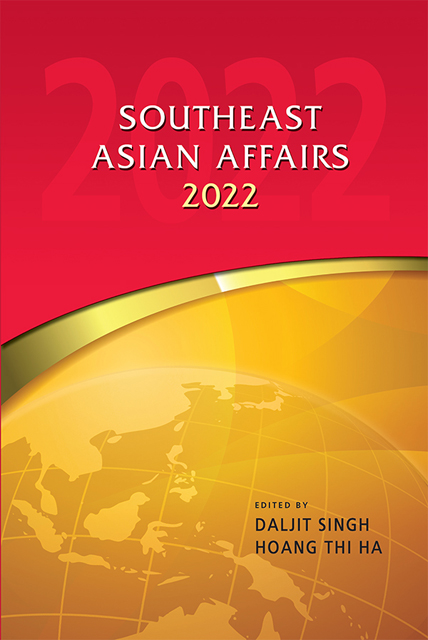Vietnam in 2021: Leadership Transition, Party-Building and Combating COVID-19
Published online by Cambridge University Press: 01 September 2023
Summary
Vietnam was officially reunified in 1976, and in December that year the Vietnam Communist Party (VCP) held its 4th National Congress. Since then the VCP has held national party congresses every five years. The 13th National Congress was held in early 2021 and its deliberations shaped domestic politics in Vietnam in the years to come.
The national party congress has seven main duties: (1) to approve the Political Report of the outgoing Central Committee; (2) to adopt short and long-term socioeconomic development plans; (3) to revise the party’s platform; (4) to amend the party’s statutes; (5) to elect a new Central Committee, which will then elect a new Politburo; (6) to decide on any other matters put before the congress; and (7) to issue a final resolution on the proceedings.
This chapter provides an overview of the 13th National Congress and the resulting turnover in party and state leadership in Vietnam. This chapter is divided into four parts: leadership transition, party-building, combating COVID-19 and a conclusion.
Leadership Transition
Leadership transition in Vietnam is a carefully orchestrated process that culminates every five years in a national party congress that elects new leaders and holds elections for the National Assembly, which in turn selects new government officials. Preparations for a national party congress generally start during the second half of the incumbent Central Committee’s five-year term; this includes the often-contentious task of determining the general composition of the new Central Committee and selecting who is qualified to stand for election. The Central Committee is composed of sectoral groups that are given bloc representation, including local party and government officials, the military, officials who hold senior positions in the government, officials who hold senior posts in the party, and members of the Politburo.
Quotas are set for three age groups: under fifty, fifty to sixty, and sixty-one and over. This is to ensure an orderly generational transition. Party rules also stipulate that Central Committee members should retire at sixty-five years of age and that they cannot serve more than two consecutive terms in the same office. Party rules also provide for a limited number of exemptions to these stipulations based on exemplary performance. In the final year of its term, the outgoing Central Committee often holds a series of plenary sessions where straw polls are conducted before confirming the final list of candidates.
- Type
- Chapter
- Information
- Southeast Asian Affairs 2022 , pp. 375 - 391Publisher: ISEAS–Yusof Ishak InstituteFirst published in: 2023

